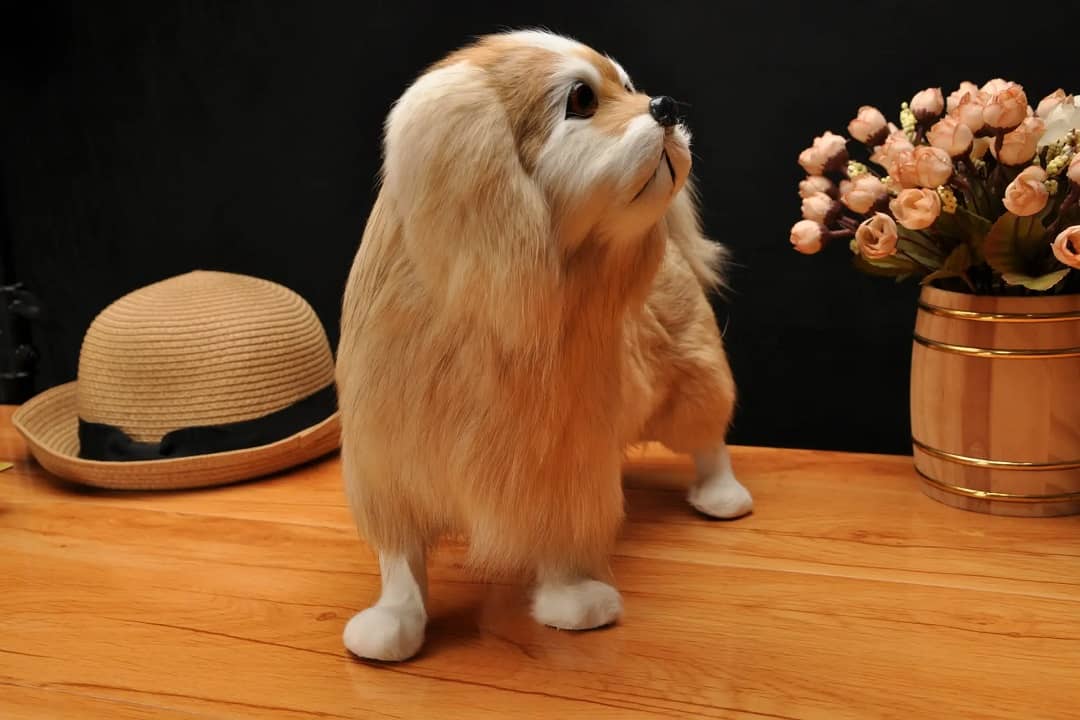Why Shih Tzu Dogs Are The Worst Dog
While it is true that Shih Tzus can be prone to various health issues such as allergies, skin problems, and cardiovascular disease, this is not unique to the breed. Many dog breeds are susceptible to different health conditions. Shih Tzus may also have a stubborn streak and strong self-esteem, but with proper training and communication, they can make great companions for both children and other pets. Shih Tzus are loyal, friendly, and affectionate animals that make great family pets. They are known for their cheerful personalities, energetic nature, and love of human companionship.
As with any breed, it is important to carefully consider whether a Shih Tzu is the right fit for your lifestyle and personality before bringing one home. While they can make excellent pets with proper training and socialization, they do have their own unique characteristics and care requirements that should be taken into account. Ultimately, the decision to adopt any pet should be made with careful consideration, research, and a commitment to providing the best possible care for the animal.

Shih Tzu Potential Health Issues
Shih Tzus may be prone to certain health issues like any other breed. Some of the common health problems that Shih Tzus are susceptible to include:
- Allergies: Shih Tzus can be prone to allergies, including food allergies, allergies to grass or pollen, and allergies to fleas.
- Skin problems: Shih Tzus may develop various skin problems like hot spots, dry and flaky skin, or dermatitis.
- Eye problems: They are also susceptible to different eye infections or diseases, such as cataracts, glaucoma, and cherry eye.
- Dental Issues: Shih Tzus may suffer from various dental problems like tooth decay, periodontal disease, and tooth loss.
- Respiratory issues: Since they have flat faces, they can develop respiratory issues such as snoring, wheezing, and difficulty breathing.
- Hip dysplasia: They may also be prone to hip dysplasia, which is a genetic disorder that affects the hip joint and can lead to lameness and arthritis.
It is essential to provide your Shih Tzu with proper care, a well-balanced diet, and regular vet check-ups to identify and prevent any potential health issues.
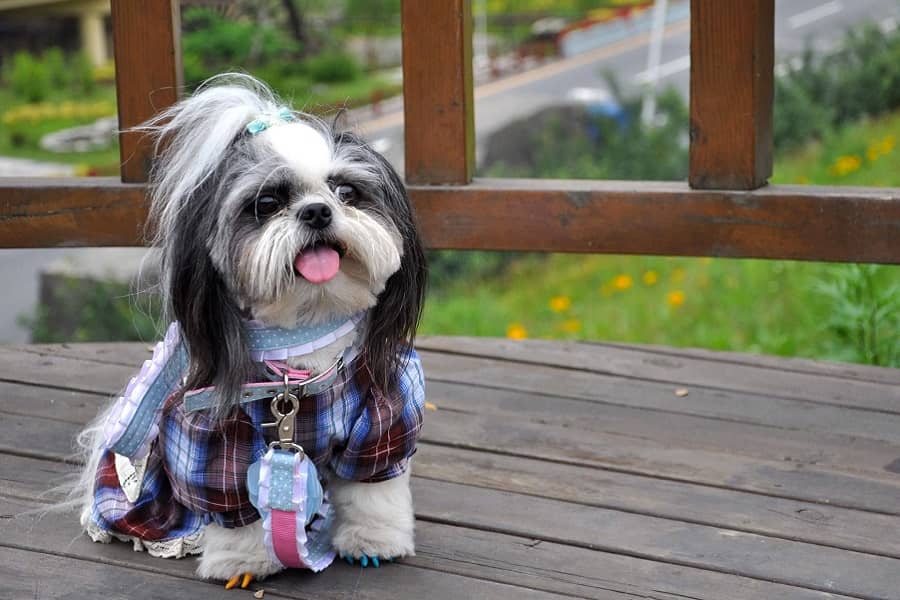
Shih Tzu dogs Allergies and What should we do?
Shih Tzus are known to be prone to allergies, just like any other breed of dogs. Common allergies in Shih Tzus include food allergies, environmental allergies such as pollen, dust, and mold, and flea allergies. Allergies can manifest in various ways, including skin irritation, hair loss, itchiness, ear infections, and respiratory issues.
If you suspect that your Shih Tzu has an allergy, it is essential to take your dog to a veterinarian for a proper diagnosis. The vet may conduct allergy tests, take skin scrapings, or recommend an elimination diet to determine the source of the allergic reaction.
Once a diagnosis is made, you can take steps to alleviate or prevent your Shih Tzu’s allergic reaction. Treatment options for allergies in Shih Tzus may include allergy shots, anti-inflammatory medication, immunotherapy, or a change in diet. In addition to medication, you may need to adjust your Shih Tzu’s environment, such as keeping them indoors during peak pollen seasons, using air purifiers, or bathing them more frequently.
It is also important to practice preventative measures to manage allergies in Shih Tzus. This includes regularly cleaning your dog’s ears to reduce the risk of ear infections, regularly bathing and grooming to remove allergens from the coat, and keeping the house clean to reduce dust and mold.
In summary, if you suspect that your Shih Tzu has an allergy, it is essential to seek veterinary care for proper diagnosis and treatment. Prevention of exposure to allergens through regular grooming, cleaning, and adjustment of the environment can also help manage allergies in Shih Tzus.
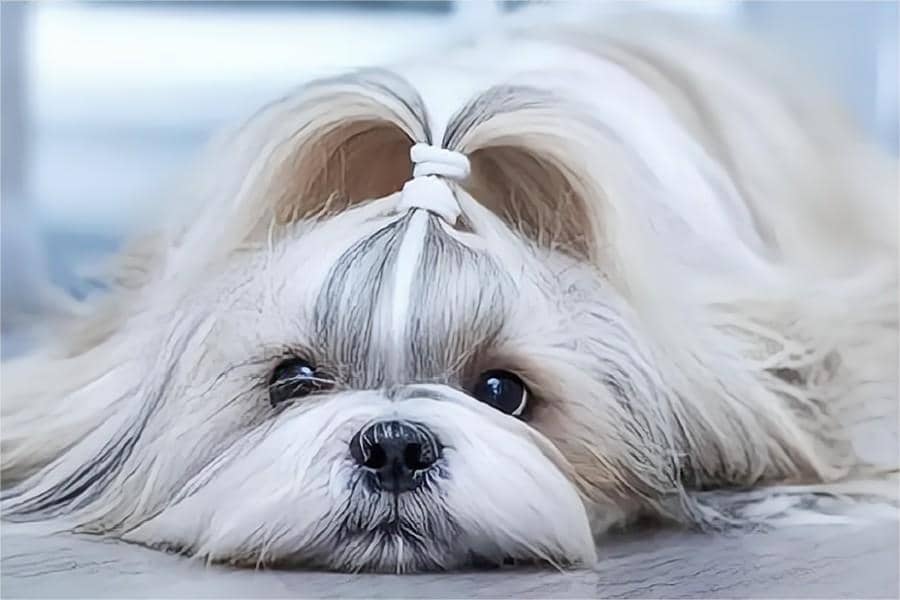
Shih Tzu dogs Skin problems and What should we do?
Shih Tzus are prone to several skin problems due to their long hair and sensitive skin. The following are some common skin conditions Shih Tzus may experience and steps you can take to manage them:
- Hot Spots: Hotspots are moist, red, and itchy patches on the skin that can appear due to allergies, grooming, or flea bites. If you notice hot spots, take your Shih Tzu to the vet, who can examine the skin and prescribe medicated ointments to manage the affected areas. Your vet may also recommend antibiotics to prevent further infection.
- Allergic Reactions: Allergies can cause skin irritations and itching in Shih Tzus. Your vet may recommend a hypoallergenic diet, shampoos, or medications to manage the symptoms. Avoid using harsh chemicals, human shampoo, or grooming products that may irritate the skin.
- Yeast Infections: Yeast infections are caused by an overgrowth of yeast on the skin. Symptoms include itching, redness, and a musty odor. This condition can be treated with medicated shampoos, antifungal medication, or ear drops.
- Anal Gland Problems: Anal glands located on either side of the anus can become blocked, causing discomfort and even infection. If you notice your Shih Tzu scooting their butt or licking their back end excessively, it could be a sign of anal gland issues. A vet can express them to relieve discomfort.
In general, maintaining proper grooming habits, including regular brushing, bathing, and hair trimming, can help prevent skin problems in Shih Tzus. Use gentle, dog-friendly grooming products, and avoid over-bathing, which can strip the skin of natural oils. You must maintain good overall hygiene and monitor your Shih Tzu’s skin for any signs of irritation or infection. If you suspect a problem, take your dog to the vet for proper diagnosis and treatment.
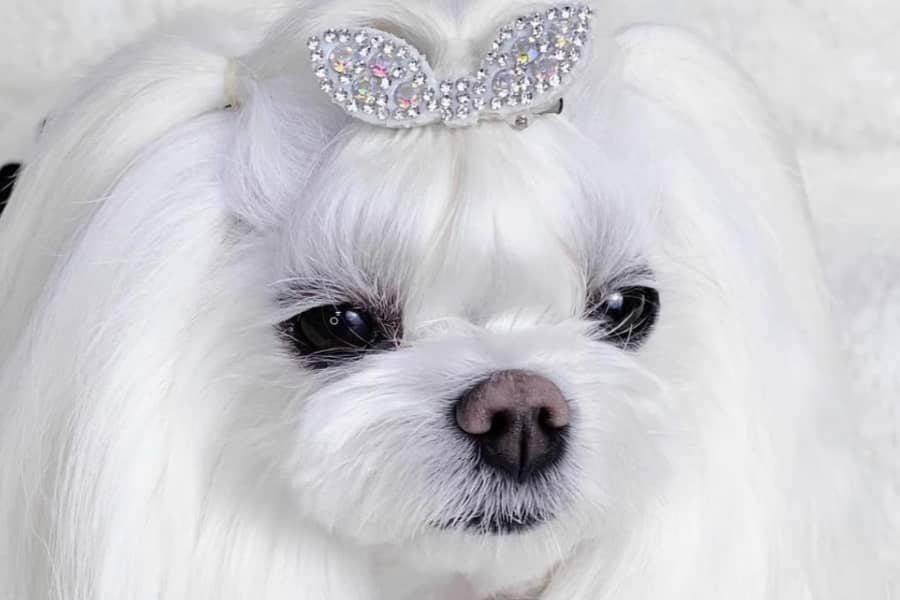
Shih Tzu dogs Eye problems and What should we do?
Shih Tzus are prone to several eye problems that require careful attention and treatment. Here are some common eye problems that Shih Tzus may experience and steps you can take to manage them:
- Entropion: This condition occurs when the eyelid rolls inward, causing the lashes to rub against the eye. The result is irritation, redness, and even ulcers on the cornea. Entropion can be corrected with surgery.
- Cherry Eye: Cherry Eye is a condition where the gland located in the lower eyelid pops out and becomes visible as a red lump in the corner of the eye. This condition may require surgery to reduce the risk of infection.
- Cataracts: Cataracts are clouding of the lens that can cause blindness if not treated. Your vet will be able to diagnose and treat cataracts.
- Dry Eye: Dry eye is caused by a decreased production of tear fluid, which can cause irritation, redness, and even corneal ulcers. This condition can be managed with medication and regular eye drops.
- Conjunctivitis: Conjunctivitis is an inflammation of the conjunctiva, the protective tissue that lines the eyelids and covers the eye. Symptoms include redness, discharge, and eye rubbing. This condition can be treated with medication.
In general, it is essential to practice good eye hygiene for Shih Tzus by ensuring that hair is trimmed around their eyes to prevent irritation or injury. Clean eyes regularly, and if you notice any signs of eye problems, such as discharge, redness, or irritation, take your dog to the vet for proper diagnosis and treatment. Prompt treatment of eye problems can help prevent more severe issues and preserve your Shih Tzu’s vision.

Shih Tzu dogs Dental Issues and What should we do?
Like most small breed dogs, Shih Tzus are at greater risk of developing dental problems, including dental decay, gum disease, and tooth loss. Here are some common dental disorders in Shih Tzu dogs, and steps you can take to manage them:
- Plaque and Tartar buildup: Plaque and tartar buildup can lead to gum disease and tooth decay. You can manage plaque by brushing your Shih Tzu’s teeth regularly with a soft-bristled brush and dog-friendly toothpaste.
- Gum Disease: Gingivitis is an early form of gum disease characterized by inflamed gums, bad breath, and, in severe cases, tooth loss. Gum disease can be managed through regular dental checkups and cleanings.
- Abscesses: Abscesses are pockets of pus that develop in the gum tissue or root of a tooth. Common signs of an abscess include fever, swelling, and redness. Treatment requires draining the abscess and in some cases, extraction of the affected tooth.
- Tooth Loss: Tooth loss is a common dental issue in older Shih Tzus and is often caused by gum disease or tooth decay. Regular teeth cleanings, brushing, and the use of dental chews or toys can help prevent tooth loss.
In general, you should brush your Shih Tzu’s teeth regularly to prevent plaque and tartar buildup. A healthy dental routine also helps to prevent potential health problems in other parts of your dog’s body, such as the heart and kidneys. Regular dental checkups with your vet can help catch dental problems before they become serious. If you notice any oral health issues, consult with your vet promptly to determine the best treatment plan.

Shih Tzu dogs Respiratory issues and What should we do?
Shih Tzus are a brachycephalic breed, meaning that they have a short snout and a flattened face that can create respiratory problems. Here are some common respiratory issues in Shih Tzu dogs, and steps you can take to manage them:
- Brachycephalic Airway Syndrome: This condition affects all brachycephalic dogs, including Shih Tzus, and is caused by the shape of their skull and soft palate. Symptoms include noisy breathing, snoring, and difficulty breathing. Treatment may include surgery to widen the nostrils to make breathing more comfortable.
- Reverse Sneezing: Reverse sneezing is a common respiratory issue in Shih Tzus. It is characterized by a sudden and intense bout of rapid inhalation through the nose and sounds like a honking noise. This can be triggered by excitement, irritants, or inhaled allergens. Generally, it is not a cause for concern, but if reverse sneezing persists or worsens, you should consult your veterinarian.
- Tracheal Collapse: This condition is common in small breed dogs and occurs when the trachea, or windpipe, becomes weak and collapses. Symptoms include coughing, wheezing, and difficulty breathing. Treatment may include medication and, in severe cases, surgery.
In general, you should monitor your Shih Tzu’s respiratory health and seek veterinary care if you notice any signs of discomfort while breathing. Regular exercise can also improve your Shih Tzu’s overall fitness and help maintain their respiratory health. Additionally, it’s important to keep your Shih Tzu away from smoke, smog, and other irritants that can aggravate their respiratory system. Since Shih Tzus are a brachycephalic breed, always ensure that they have enough fresh air and avoid overheating during hot weather.
Shih Tzu dogs Hip dysplasia and What should we do?
Hip dysplasia is a common genetic disorder that affects many breeds, including Shih Tzus. It occurs when the hip joint does not develop correctly, leading to arthritis and pain. Here are some steps you can take to manage hip dysplasia in your Shih Tzu:
- Consult with your veterinarian: If you suspect your Shih Tzu has hip dysplasia, your veterinarian can perform a physical exam and take X-rays to confirm the diagnosis. They may also recommend medications or supplements to manage any pain or inflammation.
- Maintain a healthy weight: Carrying extra weight puts additional pressure on your Shih Tzu’s joints, including the hips. Proper nutrition and regular exercise can help control your Shih Tzu’s weight and reduce their risk of developing hip dysplasia.
- Exercise carefully: While exercise is important for your Shih Tzu’s overall health, care must be taken to avoid over-exertion. Joint-friendly activities, like swimming or short walks, can be beneficial. Avoid high-impact activities like jumping.
- Consider surgery: In severe cases, surgery may be recommended to correct the hip joint ensuring your Shih Tzu can maintain a healthy and active life.
In general, early detection and management of hip dysplasia can help reduce your Shih Tzu’s pain and maintain their quality of life. Regular veterinary checkups, careful exercise, and weight management are all keys to preventing and managing hip dysplasia in your Shih Tzu.
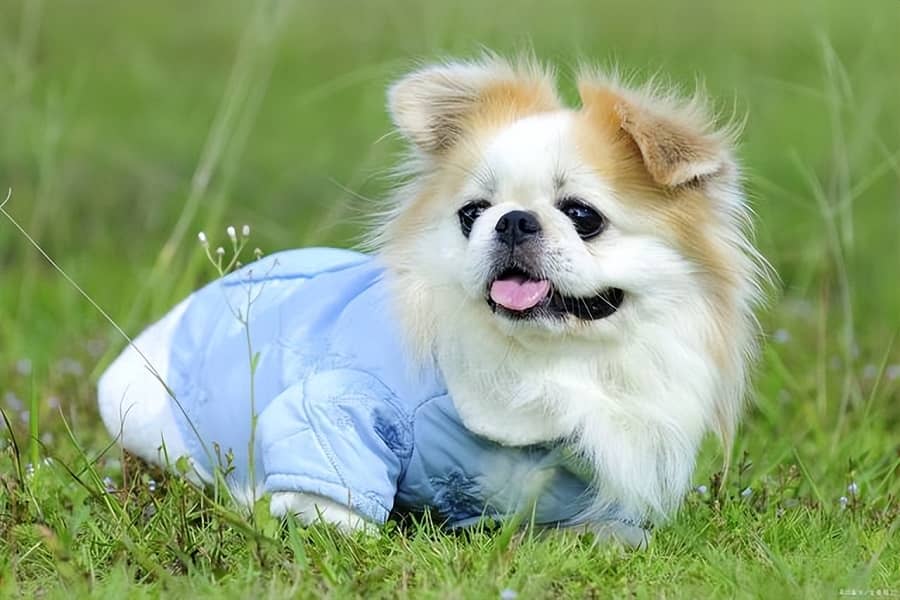
Is Shih Tzu dogs easy to take care of?
Shih Tzu dogs can be relatively easy to take care of, especially if their grooming and exercise needs are met. However, as with any breed, they require some specific care and attention to keep them healthy and happy.
Here are some key aspects to consider when taking care of your Shih Tzu:
- Grooming: Shih Tzus have a long, silky coat that requires regular grooming. Daily brushing and occasional bathing will help keep their coat clean and free of knots and tangles. Regular grooming will also help control shedding and minimize matting.
- Exercise: While Shih Tzus do not require a lot of exercise, they do need regular activity to keep them healthy and happy. Daily walks or indoor playtime can be enough to help your Shih Tzu maintain good fitness and mental stimulation.
- Teeth Cleaning: Dental health is crucial for the overall wellbeing of Shih Tzus. Regular brushing (ideally daily) can help keep their teeth and gums healthy and minimize the risk of dental diseases.
- Socialization and training: Early socialization and obedience training are vital for Shih Tzus. They are a friendly and sociable breed and do well with children and other pets if they are properly socialized. Training can help keep them happy and engaged, while also minimizing behavioural issues.
Overall, with proper grooming, exercise, dental care, and training, Shih Tzus are generally easy to take care of and make wonderful companions for those who can dedicate time and resources to their care.
Conclusion
It’s unfair to say that Shih Tzus are the worst dog breed because all dog breeds have their strengths and weaknesses, and choosing the right breed that matches your lifestyle and character is crucial for a happy pet-owner relationship. Shih Tzus are a popular breed known for their adorable looks, friendly personality, and loving nature, making them popular as a companion pet. However, like any other breed, they also require proper training and socialization to ensure they develop into well-behaved and well-adjusted dogs.

